| | Russia hits the EU mission in Kyiv, Europe ramps up its defense production, and Denmark voices frust͏ ͏ ͏ ͏ ͏ ͏ |
| |   Tokyo Tokyo |   Antananarivo Antananarivo |   Berlin Berlin |
 | Flagship |  |
| |
|
The World Today | 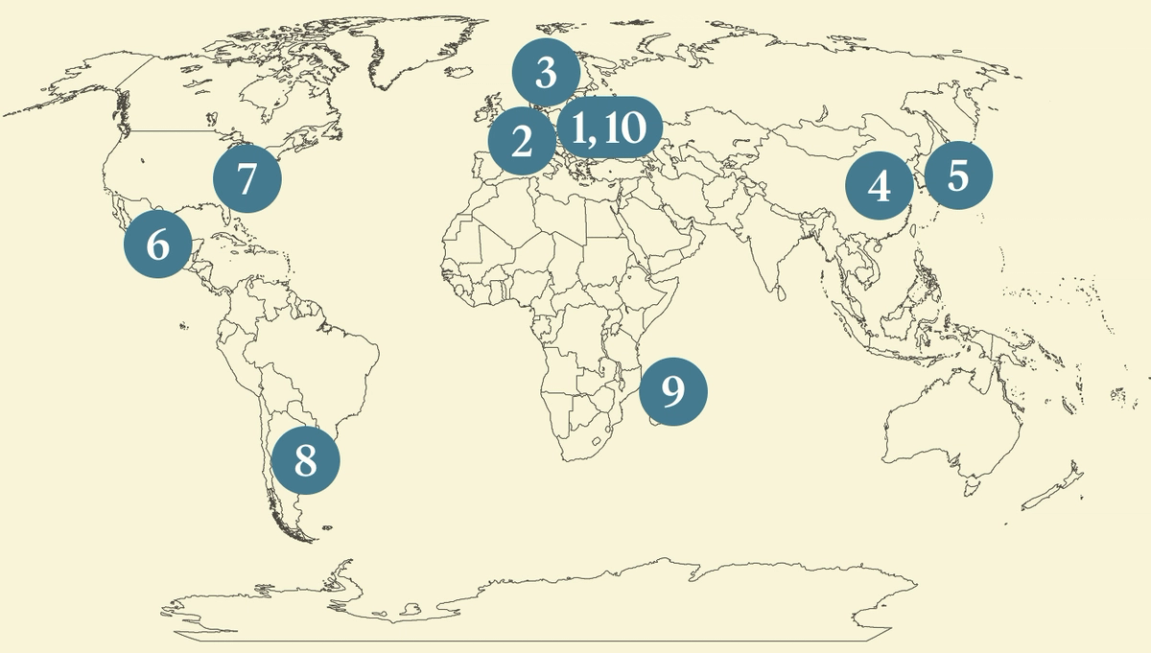 - Russia hits EU’s Kyiv office
- Europe ups defense output
- Denmark’s US frustration
- China readies WW2 parade
- Modi sets off for Japan
- Mexico, EU accede to US
- US CDC boss ousted
- Nazi art spotted, then lost
- Madagascan skulls returned
- Zelenskyy’s fashion plan
 The successful reintroduction of bison in Mexico, and a recommendation for a ‘nuanced, subtle’ film on Chinese business in Africa. |
|
Russia hits EU mission in Kyiv |
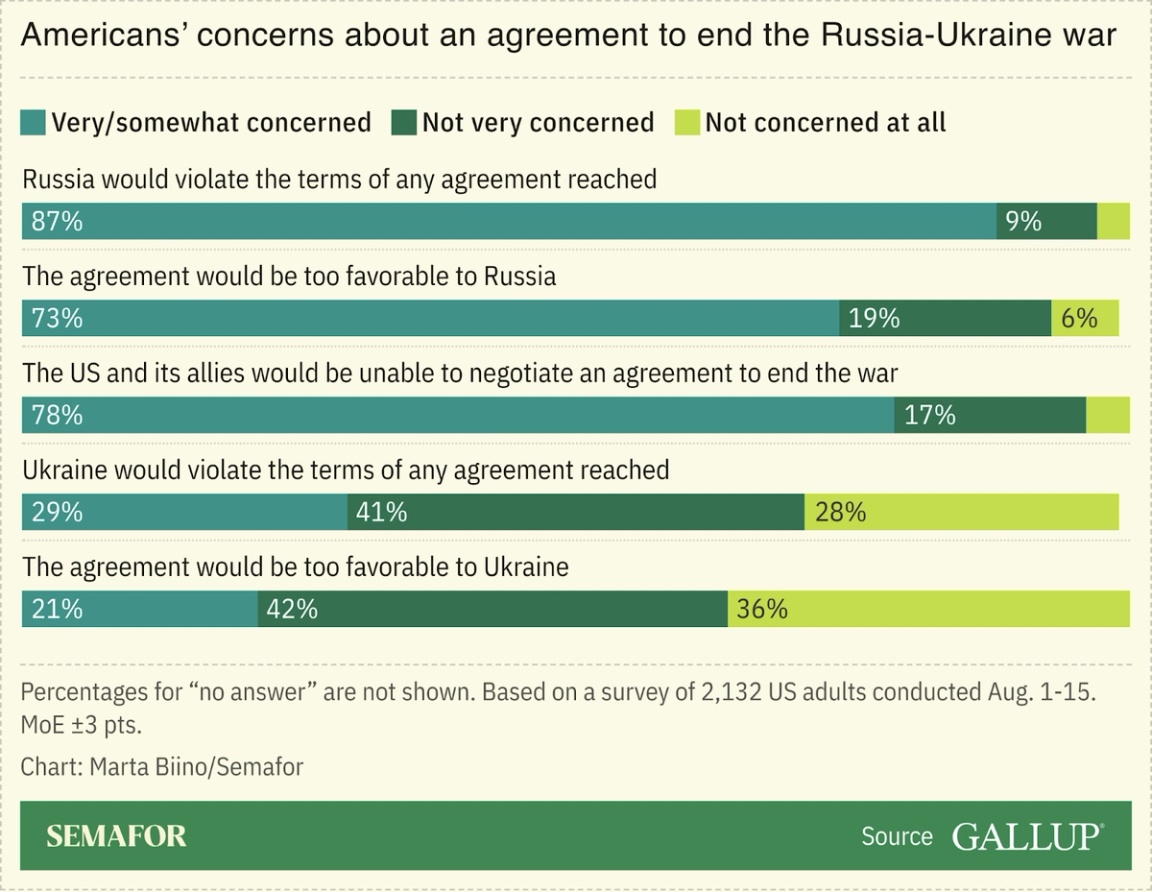 Russia launched a huge aerial attack on Kyiv, striking the building housing the European Union’s delegation in what Ukraine alleged was a deliberate attack. The drone and missile barrage killed at least 14 people, and came with Moscow ostensibly considering talks with Kyiv at the behest of US President Donald Trump: The EU’s top diplomat said the Kremlin’s strikes sought to “mock the peace efforts.” Ukrainian officials, meanwhile, were on a diplomatic offensive, heading from Riyadh to Switzerland and then on to New York City. But analysts were bearish on hopes that negotiations between Kyiv and Moscow — if they took place at all — could lead to lasting peace, and Gallup polling showed that few Americans were optimistic either. |
|
Germany opens ammo factory |
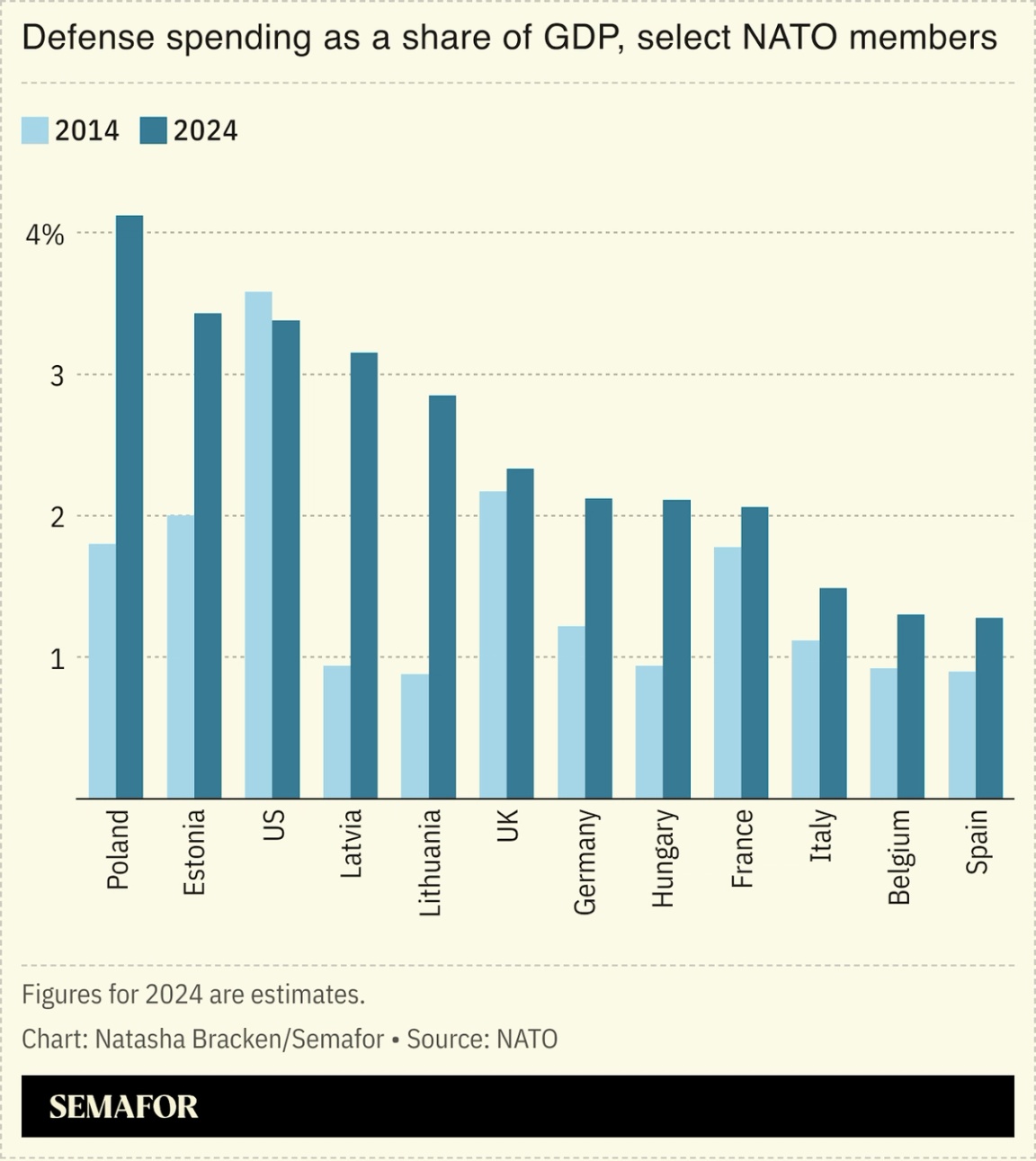 A German manufacturer opened Europe’s largest ammunition factory, underlining the continent’s push to ramp up defense spending in the face of threats from Russia and wavering US support. Rheinmetall’s facility will be able to produce 350,000 artillery shells annually by 2027, part of efforts by the continent to ultimately manufacture 2 million a year by itself. European nations have sharply increased their budget allocations for defense in recent months, helping boost share prices for defense firms like Rheinmetall, but analysts have voiced worry over the pressure the additional cash places on the continent’s welfare spending, as well as concerns that the sudden fiscal focus on defense could lead to widespread waste. |
|
 Denmark’s Foreign Minister Lars Lokke Rasmussen. Lehtikuva/Roni Rekomaa/Reuters Denmark’s Foreign Minister Lars Lokke Rasmussen. Lehtikuva/Roni Rekomaa/ReutersDenmark summoned the top US diplomat in the country over reports that Washington was waging a covert campaign to drive a wedge between the European nation and Greenland. The spat centers on a report by the Danish public broadcaster that at least three Americans with ties to US President Donald Trump were canvassing Greenland for supporters of the president’s stated desire to control the island. The White House said that Copenhagen should “calm down.” The dispute marks the second time this week that a European nation has called in an American envoy: France criticized the US ambassador to Paris for a piece he wrote in The Wall Street Journal arguing the country was not doing enough to fight antisemitism. |
|
NKorea’s Kim heading to China |
 Chinese leader Xi Jinping with North Korean leader Kim Jong Un in 2019. Xinhua/Huang Jingwen via Getty Images. Chinese leader Xi Jinping with North Korean leader Kim Jong Un in 2019. Xinhua/Huang Jingwen via Getty Images.North Korea’s leader will attend a military parade in Beijing next week to commemorate the end of World War II, an event looking increasingly likely to be characterized by opposition to the West. Kim Jong Un will be hosted by China’s Xi Jinping on Sep. 3, alongside the leaders of Belarus, Cuba, Pakistan, and Russia, among others, with no North American or European top officials expected to attend. Though defense analysts will be watching for the hardware on display, experts at the Brookings Institution in Washington argued that such parades were also part of efforts by China and Russia to wage a “memory war” in order to override Western narratives of World War II with their own. |
|
Modi heads to Japan, China |
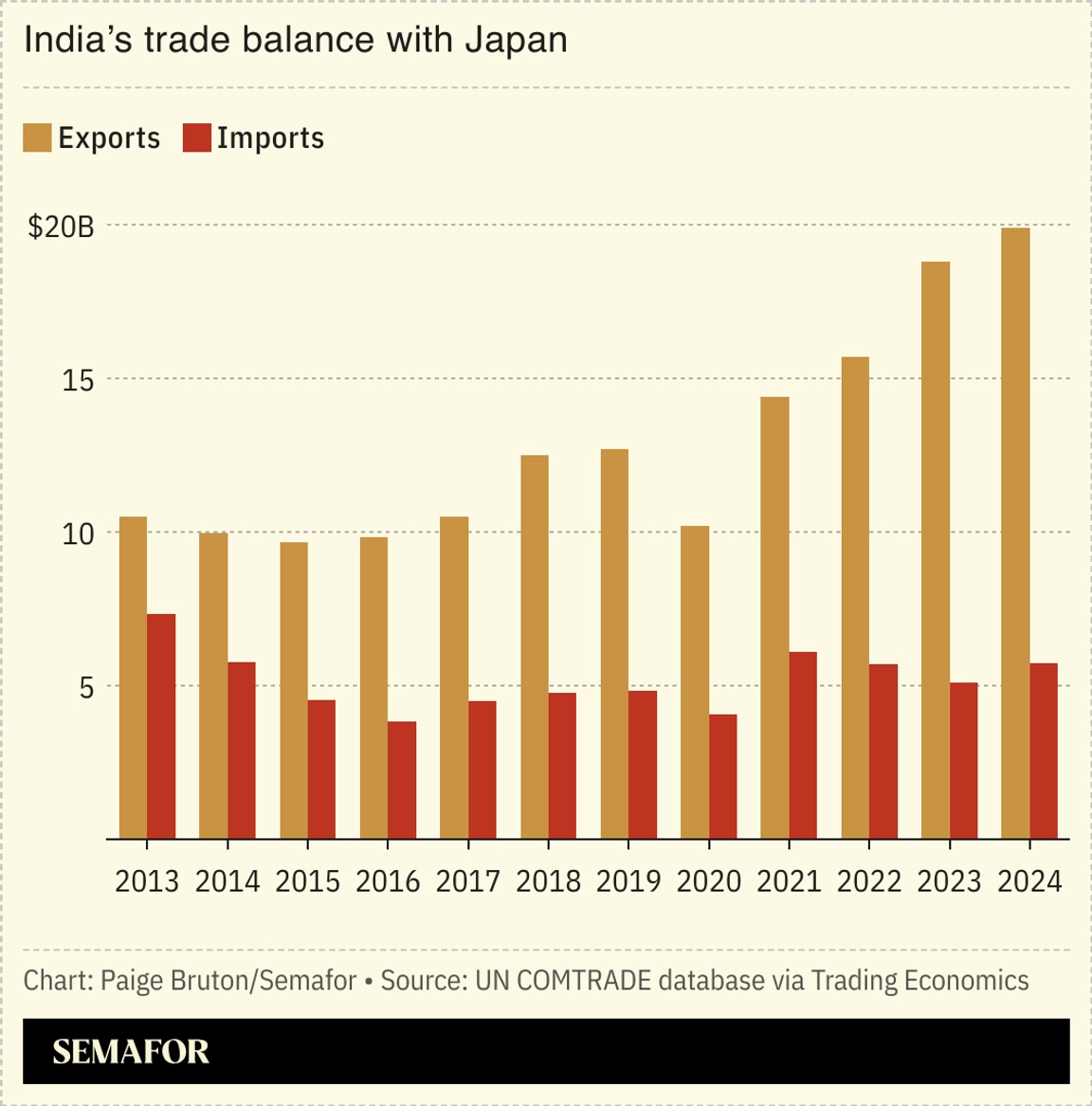 Indian Prime Minister Narendra Modi departs today for Japan and China, visits that come with New Delhi’s ties to Washington fraying. India’s relations with the US had mostly been improving in recent decades, but the White House’s imposition of hefty tariffs have upended that progress, and New Delhi has looked to expand relationships with other powers while lowering tensions with rivals such as Beijing. Modi’s priorities will vary over the course of his travels: Ties with Japan are far better than those with China, with which India has several disputes. As a prominent Indian foreign-policy scholar put it, “Expect soaring rhetoric from Tianjin… but look out for tangible progress in the strategic partnership with Tokyo.” |
|
EU, Mexico accede to US demands |
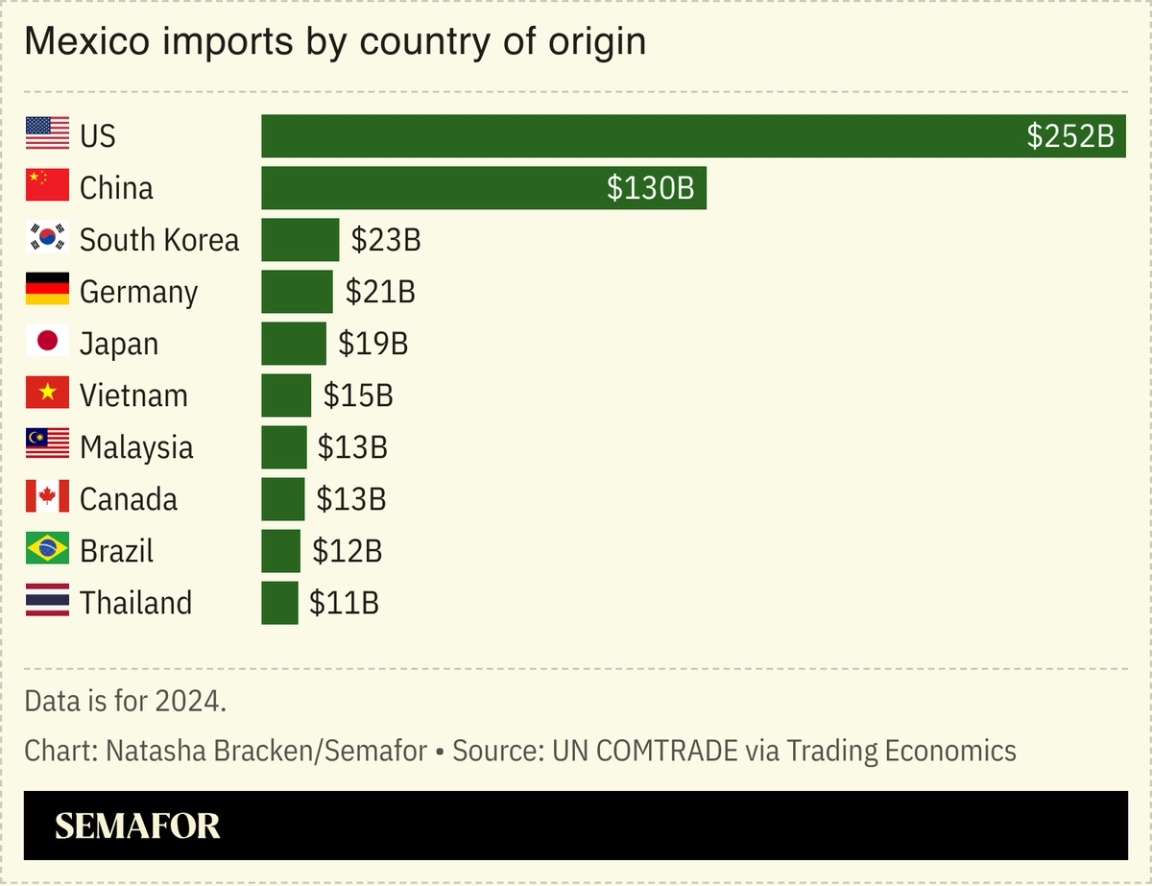 Two major US trading partners were reportedly moving to accede to American demands in order to ward off punishing tariffs, a sign of Washington making headway in its protectionist push. According to Bloomberg, the European Union plans to accelerate legislation aimed at removing tariffs on US industrial goods in order to get Washington to cut duties on imports of EU-made cars. And Mexico is getting set to increase tariffs on imports from China in the hopes of addressing White House frustration that Chinese firms evade duties by ferrying goods to the US via third countries. Beijing, meanwhile, is sending its top trade negotiator to the US this week. |
|
White House ousts CDC boss |
 Susan Monarez. Kevin Mohatt/File Photo/Reuters. Susan Monarez. Kevin Mohatt/File Photo/Reuters.The White House ousted the director of the country’s top public health body just a month after she took the job, reportedly over a dispute surrounding vaccine policies. Health and Human Services Secretary Robert F. Kennedy Jr. had asked Susan Monarez, the director of the Centers for Disease Control and Prevention, to step down, but she refused, spurring the White House to step in and fire her. Monarez, a career federal government scientist, had been pressured by Kennedy, a longtime vaccine skeptic, to support new curbs on coronavirus vaccines, The Washington Post reported: Her dismissal follows what the Post described as “months of chaos” at the CDC, which has seen hefty budget cuts and hundreds of firings. |
|
 The next wave of global growth starts at The Next 3 Billion. Convening against the backdrop of the UN General Assembly, Semafor will host on-the-record conversations with Iván Duque, Former President, Colombia; Idris Elba, Award-winning Actor, Filmmaker, Musician, and Activist; Cristina Junqueira, Co-Founder & Chief Growth Officer, Nubank; Patrick Muyaya, Minister of Communications, Democratic Republic of the Congo; Peter Ndegwa, CEO, Safaricom; and more on the economic, social, and global impact generated by bringing the next three billion people online. Sep. 24, 2025 | New York City | Delegate Application |
|
Nazi painting lost, again |
 Argentine Federal Police outside the house that was raided. Mara SostiI/AFP via Getty Images Argentine Federal Police outside the house that was raided. Mara SostiI/AFP via Getty ImagesA painting stolen by the Nazis and spotted by chance in a real estate advertisement in Argentina has vanished once again, officials said. Portrait of a Lady by Giuseppe Ghislandi was part of a collection seized by the Nazis following the death of an Amsterdam art dealer, its location unknown for decades. But a Dutch newspaper said that it appeared to be on display in a Buenos Aires home being sold by a woman whose father was a senior Nazi who had fled Europe. The report spurred police to raid the property, but by the time they did, a large rug had been hung in its place. |
|
France returns Madagascan skulls |
 Stephane de Sakutin/AFP via Getty Images Stephane de Sakutin/AFP via Getty ImagesFrance returned three human skulls to Madagascar, including one believed to be that of a king beheaded by French colonial forces during a 19th century massacre. French troops slaughtered locals from Madagascar’s Sakalava community in 1897 and took remains — including the skulls — to France, where they were housed in a Paris museum. France’s culture minister handed them back to her Madagascan counterpart during a ceremony in Paris this week, and they will soon be transported back to the Indian Ocean island: Though France has slowly been restoring colonial-era artifacts to their homelands, the latest transfer was the first of human remains since the country passed a law meant to accelerate the process of restitution. |
|
|